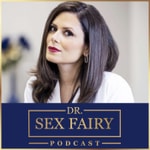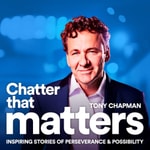Christian Natural Health – Détails, épisodes et analyse
Détails du podcast
Informations techniques et générales issues du flux RSS du podcast.

Christian Natural Health
Christian Natural Health
Fréquence : 1 épisode/7j. Total Éps: 234

Christian Natural Health is the podcast that teaches you about natural health from a biblical perspective.
I'm Dr. Lauren Deville, a practicing naturopathic physician in Tucson, AZ. In this podcast, my guests and I will cover topics ranging from nutrition, sleep, hormone balancing and exercise, to specific health concerns like hair loss, anxiety, and hypothyroidism.
Once a week, I'll include a bonus episode, meditating on a Bible verse or passage. I'll also interweave biblical principles as they apply throughout the podcast--because true health is body, mind, and spirit.
Learn more about me at http://www.drlaurendeville.com/
For questions or guest inquiries, please email me at drlauren@naturecurefamilyhealth.com
Classements récents
Dernières positions dans les classements Apple Podcasts et Spotify.
Apple Podcasts
🇨🇦 Canada - alternativeHealth
07/04/2025#88
Spotify
Aucun classement récent disponible
Liens partagés entre épisodes et podcasts
Liens présents dans les descriptions d'épisodes et autres podcasts les utilisant également.
See all- https://www.lifeaudio.com/
18449 partages
- https://www.lifeaudio.com/contact-us
17916 partages
- http://www.bensound.com
1295 partages
- https://twitter.com
1391 partages
- https://twitter.com/5JourneysHealth
17 partages
- https://www.facebook.com
1346 partages
- https://www.facebook.com/fivejourneys
18 partages
Qualité et score du flux RSS
Évaluation technique de la qualité et de la structure du flux RSS.
See allScore global : 54%
Historique des publications
Répartition mensuelle des publications d'épisodes au fil des années.
The Biblical Worldview: Interview with Dr Adam Rasmussen of the Cultural Research Center
vendredi 4 avril 2025 • Durée 35:56
Dr. Adam Rasmussen is a Fellow at the Cultural Research Center and the Dean of the College of Arts & Humanities at Arizona Christian University. He is a magna cum laude graduate of Northwestern College, where he earned a BA in history. He also holds an MA in Educational Ministries from Wheaton College, as well as a PhD in Educational Studies with a focus on leadership and administration from the Talbot School of Theology at Biola University. His research interests include biblical literacy, educational ministries, and Christian apologetics.
To learn more about the Cultural Research Center and their studies, go to culturalresearchcenter.com
Discover more Christian podcasts at lifeaudio.com and inquire about advertising opportunities at lifeaudio.com/contact-us.
Autophagy, Oxidative Stress, and the Mitochondria
vendredi 28 mars 2025 • Durée 06:30
This podcast comes from this blog post: Autophagy, Oxidative Stress, and the Mitochondria
Discover more Christian podcasts at lifeaudio.com and inquire about advertising opportunities at lifeaudio.com/contact-us.
Fasting at TrueNorth Health Center: Interview with Dr Alan Goldhamer
vendredi 24 janvier 2025 • Durée 35:35
Dr. Alan Goldhamer is an expert in the use of medically supervised, water-only fasting. He is the founder and director of TrueNorth Health Center and has supervised the fasting and care of more than 25,000 patients. TrueNorth Health is a multidisciplinary practice that includes doctors of medicine, osteopathy, chiropractic, naturopathy and psychology. Its healthcare providers treat patients with conditions ranging from high blood pressure and diabetes to autoimmune disorders and lymphoma. The Center is the largest facility in the world specializing in medically supervised water-only fasting and a premier training facility for doctors to gain certification in the supervision of therapeutic fasting. Dr. Goldhamer is a frequent lecturer, author of several books, most recently “Can Fasting Save Your Life,” as well as of numerous studies and case reports published in peer-reviewed journals.
Learn more about Dr Goldhamer at truenorthhealth.com or pick up the most recent book, "Can Fasting Save Your Life?" here.
Discover more Christian podcasts at lifeaudio.com and inquire about advertising opportunities at lifeaudio.com/contact-us.
Irreducible Complexity
vendredi 5 mai 2023 • Durée 05:39
An age-old objection to the concept of evolution is that of the blind watchmaker, and it goes like this. If a man were to find a working watch in an apparently abandoned place, far from civilization, which would be more probable: that the elements all happened to combine perfectly in the wind and heat and rain, such that a watch resulted by mere happenstance--or that another individual who had purchased the watch from an intelligent designer had been in that same place before, and had simply lost it?
It's popularly believed that this argument has been discredited, but I've yet to hear the actual counter-argument to refute it.
Darwin himself wrote of his theory of evolution, "If it could be demonstrated that any complex organ existed which could not possibly have been formed by numerous, successive, slight modifications, my theory would absolutely break down." In other words, any organism, or component of an organism, that was irreducibly complex would discredit his theory. He could say this in his day, because at the time, biochemistry was entirely unknown. Author Michael Behe wrote in "Darwin's Black Box" that it was once believed that insects arose spontaneously from dung and spoiled food, because if left to themselves for any length of time, one might go away, return, and find organic material infested with them. When small organisms were assumed to be very simple, this seemed believable. Now we know better. Even the simplest cell is unbelievably complex--akin to an incredibly efficient city in which each citizen knows and performs his job. These jobs include protein synthesis and breakdown, energy production, repair, and communication within the cell and with the outside world, not to mention complete replication of itself. The concept of irreducible complexity, as Behe defines it, is to first determine the function of the system and all the system's components, and then to determine if all of those components are required for its function. If so, then by definition, that system could not have come about by gradual changes. If it did, natural selection would have no reason to select each iteration on the way to functionality, because each in-between step would be at best, useless, and at worst, fatal.
The classic example of the former is the eye. Earlier iterations of this incredibly complex system could not see, and would thus be useless. Therefore, natural selection would have no "reason" to pass on the non-functional, half-formed system to future generations. An example of the latter is the clotting cascade: an intricate internal and external feedback system allows blood to clot without a runaway clotting process that might solidify all the blood in the body at once. If the system did not work at all, though, even a minor injury would cause the creature to bleed to death.
Objections to the concept of irreducible complexity tend to sidestep actual biochemical mechanisms in favor of conceptual precursors. These argue that light sensing organs were a precursor to the eye, for instance, and did confer survival advantage, and were thus passed down via natural selection. But since tiny steps cannot be demonstrated by which the one evolved into the other, this is a conceptual rather than a physical precursor, much like, as Behe argues, a bicycle might be a precursor to a motorcycle. The former is a much simpler means of transportation on wheels, but you can hardly make small, slight modifications to a bicycle and turn it into a motorcycle from the preexisting components of the bicycle. Even if one were to bring in outside parts to assemble, intermediate phases would still be utterly useless until the whole upgrade were complete. That scenario wouldn't represent evolution anymore, but something else altogether--something called punctuated equilibrium.
The theory of punctuated equilibrium tries to rescue evolution from both the quandary of irreducible complexity, as well as the absence of fossil intermediates (which Darwin had predicted we'd be swimming in by now, if his theory were correct). The theory, proposed by Niles Eldredge and Stephen Jay Gould in 1972, holds that evolution occurs in large jumps rather than tiny small changes.
This theory reminds me of the deus ex machina literary device: "and then the gods came down and fixed everything." (Only, not God, you understand.)
In literature, this device is considered a cop-out. Authors employ it only when they have no idea how to fix the mess they've created. But that's not the case in science, apparently.
Discover more Christian podcasts at lifeaudio.com and inquire about advertising opportunities at lifeaudio.com/contact-us.
How Salt Affects Insulin Resistance
vendredi 28 avril 2023 • Durée 06:48
This week's podcast comes from this blog post, How Salt Affects Insulin Resistance.
Discover more Christian podcasts at lifeaudio.com and inquire about advertising opportunities at lifeaudio.com/contact-us.
Anthropic Fine Tuning
vendredi 21 avril 2023 • Durée 09:39
Even if one were to believe that life evolved on its own, the physical laws are peculiarly conducive to life, apparently fine-tuned to an extraordinary degree. Stephen Hawking wrote in "A Brief History of Time": “The remarkable fact is that the values of these numbers [the constants of physics] seem to have been very finely adjusted to make possible the development of life.” Other prominent (non-believing) scientists who authored books on the subject of anthropic fine-tuning include Roger Penrose, Frank Tipler, and Paul Davies.There are four fundamental forces that define the subatomic world: gravity (which still isn't fully understood), electromagnetism (the attraction of opposite charges, enabling electron orbitals to remain in proximity to the nuclei, necessary for formation of chemical bonds), the strong nuclear force (binding atomic nuclei together), and the weak nuclear force (which allows protons to become neutrons and vice versa).
If gravity were much weaker, matter would not be sufficiently attracted to each other and planets and stars wouldn't be able to form. If it were only slightly weaker, stars would not explode and distribute the heavy elements formed in their cores, necessary for life. If gravity were stronger, smaller and thus shorter-lived stars would have formed, burned out faster, and likewise would not have been massive enough to explode and distribute heavy elements for life.
If the electromagnetic force were stronger, the electrons would collapse into the nucleus of an atom, rendering chemistry impossible. If it were weaker, electrons would not hover around the nucleus at all, likewise rendering bonding and thus, more complex molecules impossible.
If the strong nuclear force were 50% stronger, hydrogen (the simplest atom and starting point for nuclear fusion in stars) would have been consumed in the early universe. If it were 50% weaker, fusion would either not have occurred at all, or would not occur to the degree necessary to form heavier elements. In order to produce adequate carbon and oxygen for life, the strong nuclear force could not deviate from its present strength much at all.
If the weak nuclear force were weaker, conversion of neutrons to protons would be much faster, and thus, hydrogen in stars would turn into helium too fast--ultimately causing the stars to burn up too quickly. In addition to these, the ratio of the masses of protons to neutrons is exactly as it must be for DNA to be possible.
The masses of neutrons relative to protons are also exactly as they must be to allow heavy elements to form, without causing all stars to collapse into black holes.
The convection in earth's core runs on radioactivity. If there were any less fuel, it might not have eventually formed iron, necessary for the production of earth's magnetic field which protects us from the sun's harmful solar wind, or charged particles that might otherwise destroy us. Any more radioactive fuel, and we'd be constantly beset by earthquakes volcanic eruptions, the ash of which would blot out the sun.
Along the same lines, if earth were less massive, the magnetic field would be correspondingly weaker. As a result, the solar wind could strip away our atmosphere and thus, our breathable air. If it were more massive, earth's gravity would correspondingly increase, which would at a certain point cause a more uniform surface (no mountains or sea floors). This would distribute the oceans across earth's surface, making us a water world.
In order for water to be present on a planet at all, it must orbit its star at a precise distance, called the circumstellar habitable zone; too close and we would experience the same runaway greenhouse effect that is believed to have occurred on Venus (water evaporates, concentrates in the atmosphere, traps the sun's rays, and the temperature eventually becomes an oven). Too far, and it will freeze into an ice planet. The only way to prevent the water from freezing would be to increase atmospheric carbon dioxide to trap the sun's heat, but too much CO2 would mean not enough oxygen necessary to sustain life as we know it.
Our sun also has to be exactly the right size. Too small, and it would be a red dwarf, emitting far less light, and most of it in the red end of the spectrum. This would greatly impede photosynthesis, as plants require both sufficient sunlight, and both blue and red spectrum light as well. Impaired photosynthesis means not enough oxygen. A smaller star would also have a much closer circumstellar habitable zone; the problem is, a much closer orbit to a star would dramatically increase the tides on the planet, too. This would cause the planet to become tidally locked, like Pluto and its moon, Charon. This means one side would always face the star, while the other would always face away, causing dramatic temperature variations.
If the sun were larger, its light would be more toward the blue end of the spectrum, which would allow for oxygen production, but would leave us susceptible to intense ultraviolet radiation.
Jupiter and Saturn act as guards for earth: their immense gravitational pull tends to protect earth from stray comets that might otherwise collide with us and cause mass extinction.
Our moon's size and proximity stabilizes Earth's precise tilt of 23.56 degrees, which is necessary to keep our seasons mild. It also is responsible for 60% of the tides, which, among other things, drive the ocean current and thus help to distribute heat throughout the planet.
Earth also has to be placed exactly where it is within the galaxy. There is a 'habitable zone' within galaxies too, such that we have access to heavier elements from the larger stars, but we're still far enough from the spiral arms of the galaxy where supernovae occur from the most massive stars.
These are just a few examples of cosmic fine-tuning. Many scientists recognize the improbability of these parameters being just so. A rather circular non-explanation is called the Weak Anthropic Principle by Brandon Carter, which states, "We must be prepared to take account of the fact that our location in the universe is necessarily privileged to the extent of being compatible with our existence as observers." In other words, things are the way they are because if they weren't, we wouldn't be here to ask the questions of why they are they way they are. The corresponding Strong Anthropic Principle states, "[T]he Universe (and hence the fundamental parameters on which it depends) must be such as to admit within it the creation of observers within it at some stage." The classic logical objection to this argument is that of a criminal expecting to die by firing squad, who nevertheless faces the squad and lives. Would it not beg the question for him to conclude that the firing squad missed him simply because if they hadn't, he wouldn't be alive to ask why he was still alive?
Those who do not believe in a designer generally get around this objection via the multiverse interpretation of Quantum Mechanics: the idea that every possible quantum event does actually occur in some universe or another. Therefore every possibility, no matter how unlikely, must occur somewhere, at least once... and in the universe where it does, humans will evolve to ask questions such as "why is everything so perfectly fine-tuned for life?"
Such an interpretation certainly seems to me to violate Occam's Razor: the simplest explanation is usually the correct one. (Not to mention, it begs the question--how one universe began in the first place now becomes a far more complicated problem of how multiple universes might be continuously generated with every Quantum Mechanical "choice.")
Discover more Christian podcasts at lifeaudio.com and inquire about advertising opportunities at lifeaudio.com/contact-us.
Does Salt Raise Your Blood Pressure?
vendredi 14 avril 2023 • Durée 06:20
This week's podcast comes from this blog post, Does Salt Raise Your Blood Pressure?
Discover more Christian podcasts at lifeaudio.com and inquire about advertising opportunities at lifeaudio.com/contact-us.
How to Forgive - Pastor David Peterson
vendredi 7 avril 2023 • Durée 41:29
Rev. David Peterson is an ordained pastor and board-certified chaplain, with over thirty years of experience in ministry to congregations, as well as chaplaincy experience in hospitals, fire/EMS, law enforcement and hospice. He's provided emotional and spiritual care on the scenes of devastating events from 9/11 to school shootings and various community tragedies and in 1994, founded Shepherd’s Staff Pastoral Services, where he was able to provide spiritual care to thousands via chaplains he trained and placed at long term care facilities across the U.S. A study in resiliency and forgiveness, David has lived all his life with tremors in his hands and arms and navigated the bullying, harassment and embarrassing moments it has invited from those who lack understanding and empathy. And at the age of 12, he was targeted by a neighborhood pedophile who used alcohol, pornography and affirmation to abuse him sexually, emotionally, spiritually and mentally. Years of silence, anger, shame and self-destructive behaviors followed before healing and forgiveness transformed him. David and his wife, Arden — as well as their four sons and their families — reside in Chesapeake, Virginia.
To learn more about Pastor David or to get his books, go to davidpetersonbooks.com
To check out some of his sermons, see - apostles-lutheran.org
Discover more Christian podcasts at lifeaudio.com and inquire about advertising opportunities at lifeaudio.com/contact-us.
Integrative Orthopedics - Dr John Tait
vendredi 31 mars 2023 • Durée 38:12
Dr. Tait is the founder of ORIGEN Orthopedics and Optimal Health, a medical practice that applies the principles of Functional and Regenerative Medicine with the goal of helping patients lengthen the lifespan of their joints, while simultaneously improving their total health and quality of life. ORIGEN is the only Orthopedic clinic in the region exclusively focused on non-surgical solutions. Dr. Tait has authored three books and has created two courses on his Integrative Regenerative approach to Orthopedic care and optimal health. He gives more than a dozen talks per year on his unique approach to optimizing one’s human potential.
To learn more about Dr Tait, see www.origenortho.com
ebook: 3 Reasons Doctors Never Get Surgery: tinuyrl.com/neversurgery
Video: Stem Cell 101 Masterclass: tinyurl.com/helphealing
Discover more Christian podcasts at lifeaudio.com and inquire about advertising opportunities at lifeaudio.com/contact-us.
Training Wheels for Praise
vendredi 24 mars 2023 • Durée 15:32
Today's meditation comes from Psalms 6, 38, 39, 42, and 43.
Discover more Christian podcasts at lifeaudio.com and inquire about advertising opportunities at lifeaudio.com/contact-us.









